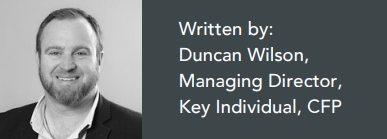Dear Kids,
I am writing to you about finances as it is taboo, and I wish my parents had written to me when I was younger and explained how the world works.
Understand that true wealth is a life filled with good and bad experiences. “This too shall pass” is a universal law you can take to the bank each time.
Outside a life of experience, love and all the rest, the bills still need to be paid. There are no free plane trips to Mauritius.
What follows are my ten biggest retirement mistakes, in descending order of importance, reduced to a simple cheat sheet.
Pass this on to your children and grandkids alike, as they will remain the same for the next 100 years.
10 – Investing Too Aggressively
This is most people’s guess for their most significant investment mistake. The more time you give an angry person to cool off, the less likely they are to retaliate.
Avoid an investment smack by remembering that all investments (audited, established and substantial ones, that is) can be riskless if the universal laws of investment time are adhered to. Time heals, especially in the investment universe.
9 – Underestimating Property Costs
It took me buying our first home to understand this truly:
• Assume Property Cost = R2 000 000
• Rental Income = R17 000 per month
• Interest cost over 20 years = R1 200 000
• Rates & Taxes = ± R2 500 per month
• Insurance = ± R1 250 per month
• Water & Lights = R1 500 per month
• Maintenance Provision = ± R3 000 per month – 15% average of rental income.
Then, the taxman needs his share, making residential properties generally poor investments. If you live in it, there’s no rental either.
8 – Relying Too Heavily on State or Employer Pension Funds
No pension offering in any country around the world, covers all your retirement needs. Empower yourself through tech to understand where you’re at and where you want to be.
Start early; compounding works.
7 – Failing to Understand Income Sources
Not all income streams are the same. Dividends to foreign owners are taxed at 5%, whereas local dividends are at 20%. Interest earned is fully taxable as income.
The interest charged on a commercial (not residential) bond is deductible for tax purposes, reducing taxable income.
6 – Forgetting Healthcare Costs
Medical aid premiums have gone up annually by at least 10%. Extrapolate that over time, and it becomes a formidable yet essential cost. The monthly cost of chronic medication has become a permanent expense in most human budgets.
5 – Setting Unrealistic Return Expectations
If it sounds too good to be true, it is. Ensure that any return expectations are conservative or “worst case” – you can only be pleasantly surprised in the future. Future returns are promises, and “estimated” returns are dreams. Part of your return this year depends on what you made last year. Consistent annual growth is like the peloton in cycling – you can break away and have a faster time over a single stage, but over the length of the entire race, the peloton is difficult to outrun.
4 – Investing Too Conservatively
This is a much bigger problem than investing too aggressively – point 10. Remember, sufficient time diffuses “risk” as you know it. Enjoy low risk across the board, even when holding growth or “aggressive” assets. You’ll understand the importance of this when we get to number one on this list.
3 – Over Estimating Investment Income
If you want to safely retire on R20 000 per month, you need R5 million. That’s just over R4 000 per month per million saved. “Safely” means allowing annual capital growth over and above your income. This sinks too many retirement ships.
2 – Underestimating How Long You Will Live
In 1870, the average life expectancy of the world’s population was 30 years old. In the year 2021, this had risen to 71 years of age. This means we homo sapiens have more than doubled (136%) our life expectancy over just 150 years. The first generation to consistently reach 100 is already alive and kicking.
1 – The Slow Puncture – Inflation
Inflation is the yearly increase in the cost of living. It is the most significant risk to any retirement voyage due to its ability to remain hidden from most. If retirement were a ship, then inflation is like a small water leak. It may not seem like a big deal at first, but over time the water accumulates, slowing down or even jeopardising the vessel’s journey.
Sailing on a flat sea (holding money in a bank/cash) may be stress-free, but it avoids the much-needed wind and swell (growth assets), the essential fuel required to reach any destination. Reference: Inspired by the Natixis Global Survey of 2 700 Financial Professionals 2022.
I wish you well on your journey of life.
Navigating finance is part of the challenge, and many people, including financial advisors, will accompany you on your journey. They can be very beneficial; however, remember you are the commander of your ship, and they are your second in command.



